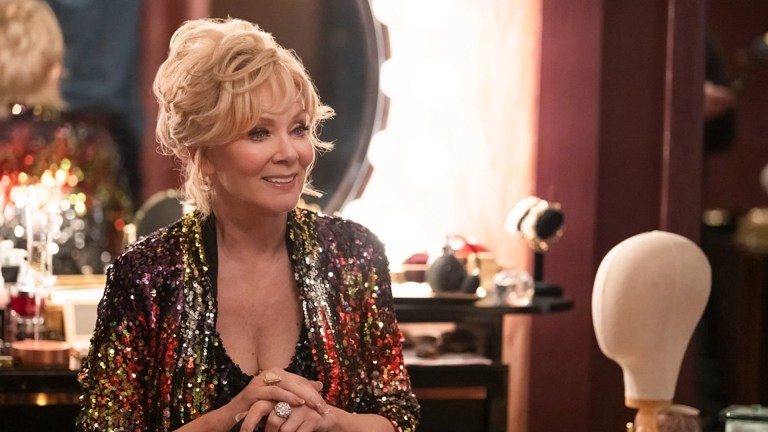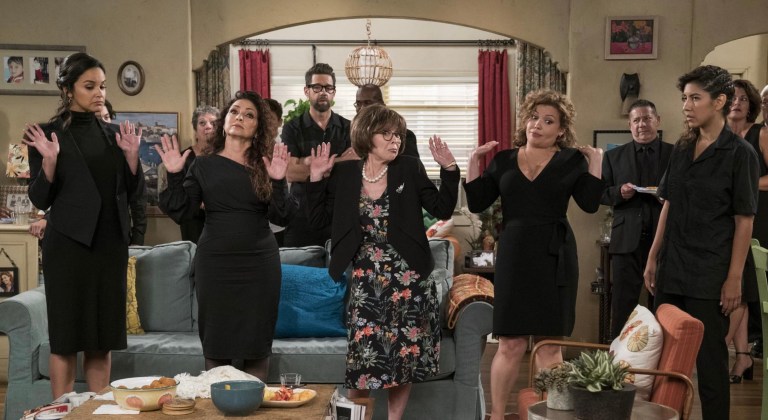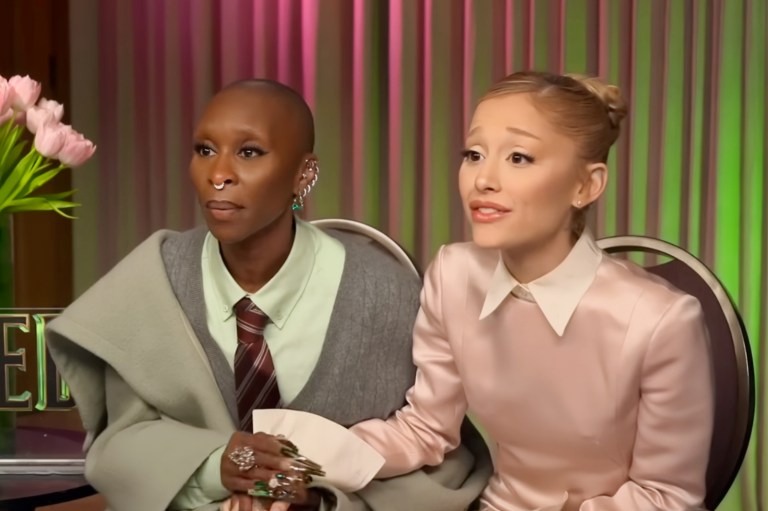
This HBO Show Could School Men On What To Do If They Get Canceled
One of the oldest tricks in the book is to pass off an offensive comment as a joke. The trick works equally well in middle school and on the Real Housewives franchise: The moment a person is held accountable for their cruelty, they simply say, “It was a joke,” shifting the burden of awkwardness to everyone else. Told all your friends you hate Jessica? “It was just a joke,” you tell Jessica. Slept with Jessica’s husband? “Relax, Jessica!” Submitted a false report to the police that Jessica was embezzling millions of dollars through her Etsy account? “Jessica, I say this as a friend, but you’re being a delusional psycho.”
But for those of us who don’t resort to middle school-level mind tricks? We take accountability. And Hacks, of all TV shows, just showed A-List celebrities how to do it.

If you don’t already watch Hacks, here’s a primer: Deborah Vance (Jean Smart) is a boomer stand-up comedian who built a fortune off of making offensive jokes in her early career. Ava (Hannah Einbinder) is her hyperwoke, privileged assistant who constantly cringes at Vance’s anti-woke epithets and off-handed offensiveness. However, in Episode 8, Vance finally faces the consequences of her actions. After a cadre of students at her alma mater makes a supercut of her most offensive jokes, the resultant Internet firestorm forces the university to cancel Vance’s appearance.
Immediately, Vance deploys the same arguments that modern-day older celebrities use when confronted with their past mistakes. “But everyone was doing it back, then,” she says. She even plays the female comic card, insisting that she was progressive in her day, obliterating barriers by getting canceled for saying “abortion” on TV. Then, Ava, in the fortunate position of being Vance’s confidante, speaks sense. Vance is already rich and famous; she’s not exactly a victim. She also might have broken barriers for women; but it’s also simultaneously true that she has offended other marginalized groups. Basically, Ava lays out the situation in all its complex glory instead of resorting to knee-jerk cancellation – a welcome change from the playbook of the Very Online crowd.
But it’s what Vance does next that could change the game for real-life canceled celebrities, if they’d listen. She apologizes. And considering that she’s the woman whose refrain is “never apologize for jokes,” this is already a huge step. However, she doesn’t just apologize – She also attends a university forum where students discuss how her jokes hurt them. She witnesses, first hand, the power of her words, and even learns the word “ableist” along the way.

If only this show weren’t fiction. Let’s revisit Matt Rife – the poster-boy for anti-woke standup comedy. In his November comedy special on Netflix, he joked that a woman could have avoided getting a black eye if she’d been a better cook. The joke rightly earned him a tsunami of online criticism, especially since his fanbase was mostly women at the time. (Unclear if he still has a fanbase.) Rife’s apology was just as shameful: The “official apology” that he posted was actually a link to the special needs section of an online medical store, implying that anyone offended by his jokes was differently abled. In other words, he did the opposite of Deborah Vance in every way.
Of course, many other male comedians – especially older ones – have similarly shared half-apologies or non-apologies for their transgressions. Dave Chappelle and Ricky Gervais have been canceled, to an extent, for transphobic language, whereas Shane Gillis was fired from Saturday Night Live for his past (but not so long ago) homophobic and racist language. Chappelle still has a deal with Netflix, Gervais has continued to churn out specials, and Gillis recently returned to host the very show that fired him. None of these men have apologized or atoned to the extent of Deborah Vance.
The brilliance of Episode 8 Hacks is that it embraces the complexity of cancellation. It doesn’t advocate for the ruination of someone’s career simply because of their past mistakes. Rather, it begs accountability of our celebrities and encourages real, productive dialogue – a tool sorely missing from modern online discourse. As the Very Online sect rushes to the plate during cancellation scandals with clout-chasing virtual signaling, they don’t necessarily promote healing among the victims they claim to protect. Real healing comes from the perpetrators themselves. With an ounce of compassion, says Hacks, it’s possible to make those perpetrators listen and change.
That being said, Matt Rife is a scumbag and Netflix should fire him immediately.











